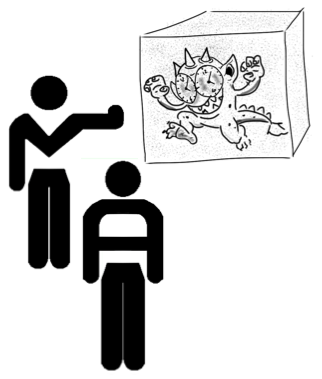Check step of the Encounter Process

Let us say that my encounter has gone well – prepared, engaged and executed correctly, so that everyone is enthusiastic about the next steps that have been agreed.
As always, however, time is pressing and my client has to run off to another meeting. Also, in spite of our meeting’s apparent success, a couple of incompletely resolved issues remain and, what is more, a member of my client’s team seems rather withdrawn. Do they not agree with what was decided? Do they need more information or debate? Or is some completely unrelated problem on their minds?
In other words, even the most successful meetings result in a number of open questions and things to tidy up. If they are left in an unresolved state, then the good work of the encounter may be undone or, worse, turn out to be counterproductive. For example, a bubble of enthusiasm can quickly turn into a feeling of disappointment if perceived promises are not fulfilled. If, having discussed an issue once, a client does not get the solution that they then expect, then they may not want to talk to me about it again. As far as the withdrawn team member is concerned, have I inadvertently created an enemy of them? Are they now hostile to my cause and could they undermine my efforts? It is important to sort this out!
In order to make these checks, I need to stall the Hurry Monster. To do this, I have to anticipate his arrival, keeping a tight rein on the meeting agenda from the beginning. This does not mean sticking rigidly to the initial plan – who knows where the discussion will take us? – but it does mean:
- Finding out how much time people have available at the beginning of the meeting (during the Engage step)
- Bringing the Do step to a halt early enough so that there is time to check for completeness before everyone goes their separate ways
These precautions in the Engage and Do steps then allow me, in the Check step, to tidy up. Just like a doctor who, at the end of a consultation, makes sure that his patient is in a fit state to leave the surgery and that all the necessary medicines have been prescribed, I must check for completeness and agree action points.
In summary, the Check step is the essential link between the Do and Follow Up phases, ensuring that:
- Agenda points have been covered or, if not, we have decided how to deal with them (later, or not at all). In other words, that the process is complete.
- Goals have been met or, if not, we have decided how to deal with them (later, or not at all). In other words, that the content is complete.
- Next steps and their owners are agreed.
- Everyone involved (including myself) is either comfortable with the meeting’s outcome or, if not, that I have noted potential divergences and the need to deal with them.
- Anything else that could be considered as a lack of completeness – something not completely dealt with, a concern, a niggle – is noted and, if appropriate, discussed.
More about The Encounter Process:
- The Encounter Process top
- The Encounter is a Theory We Use
- Challenge example: it isn’t just about relationships – process matters too
- Challenge example: jumping ahead too quickly
- The Obstacle Course
- The Encounter Process explained
- Prepare step of the Encounter Process
- Engage step of the Encounter Process
- Do step of the Encounter Process
- Check step of the Encounter Process
- Follow Up step of the Encounter Process
- The Encounter Process in brief
Get the Client Encounters of the Technical Kind book!
